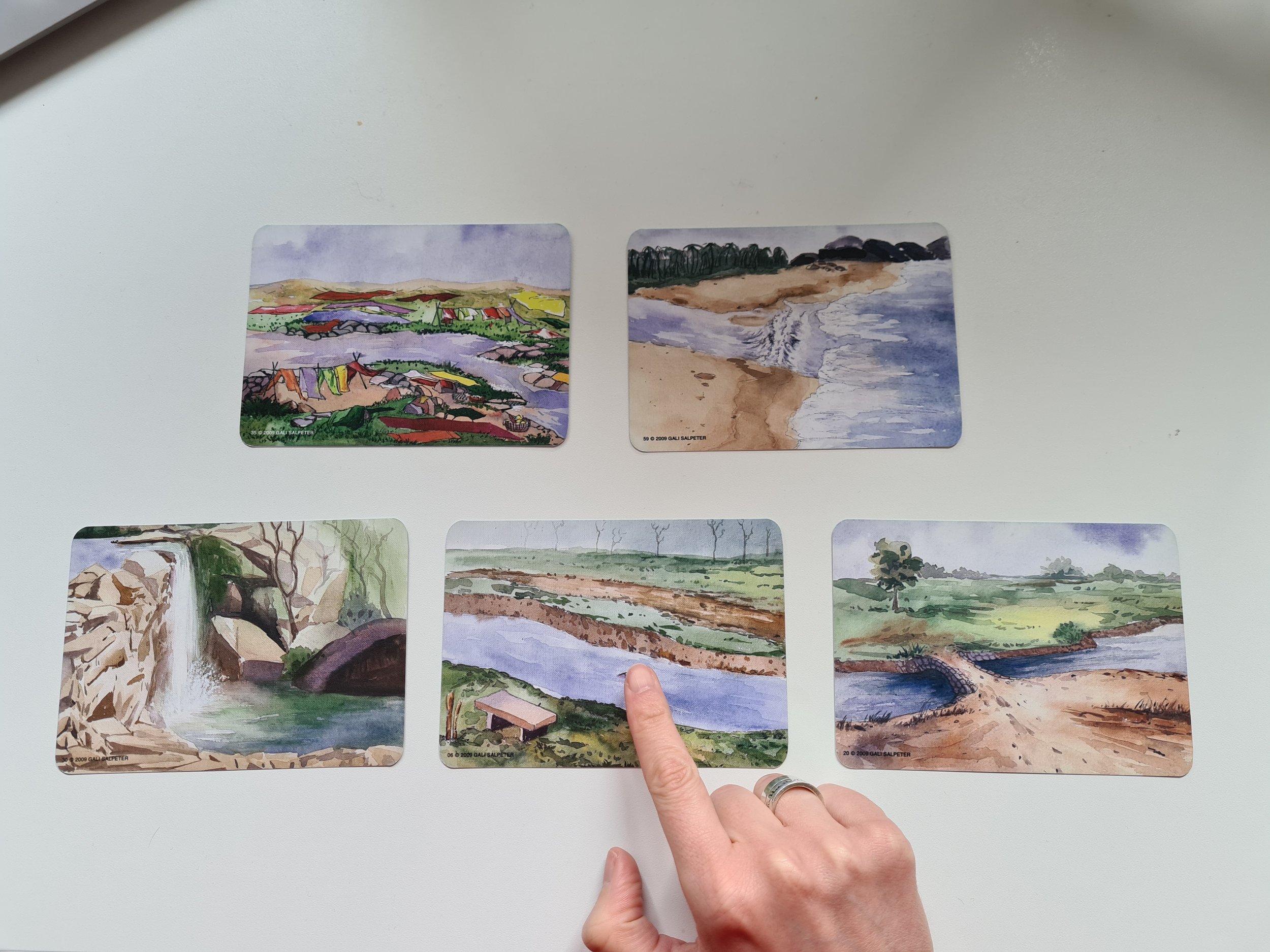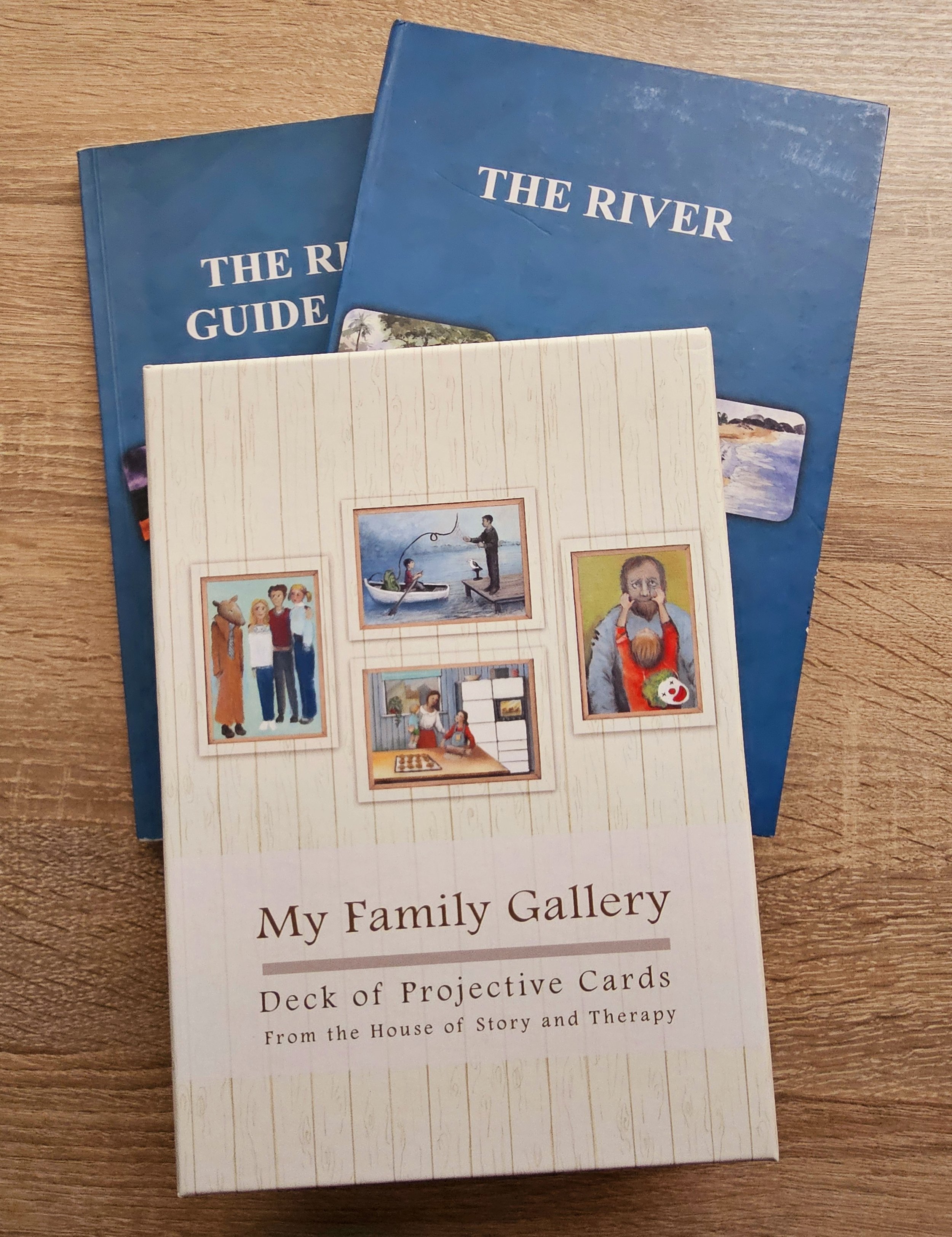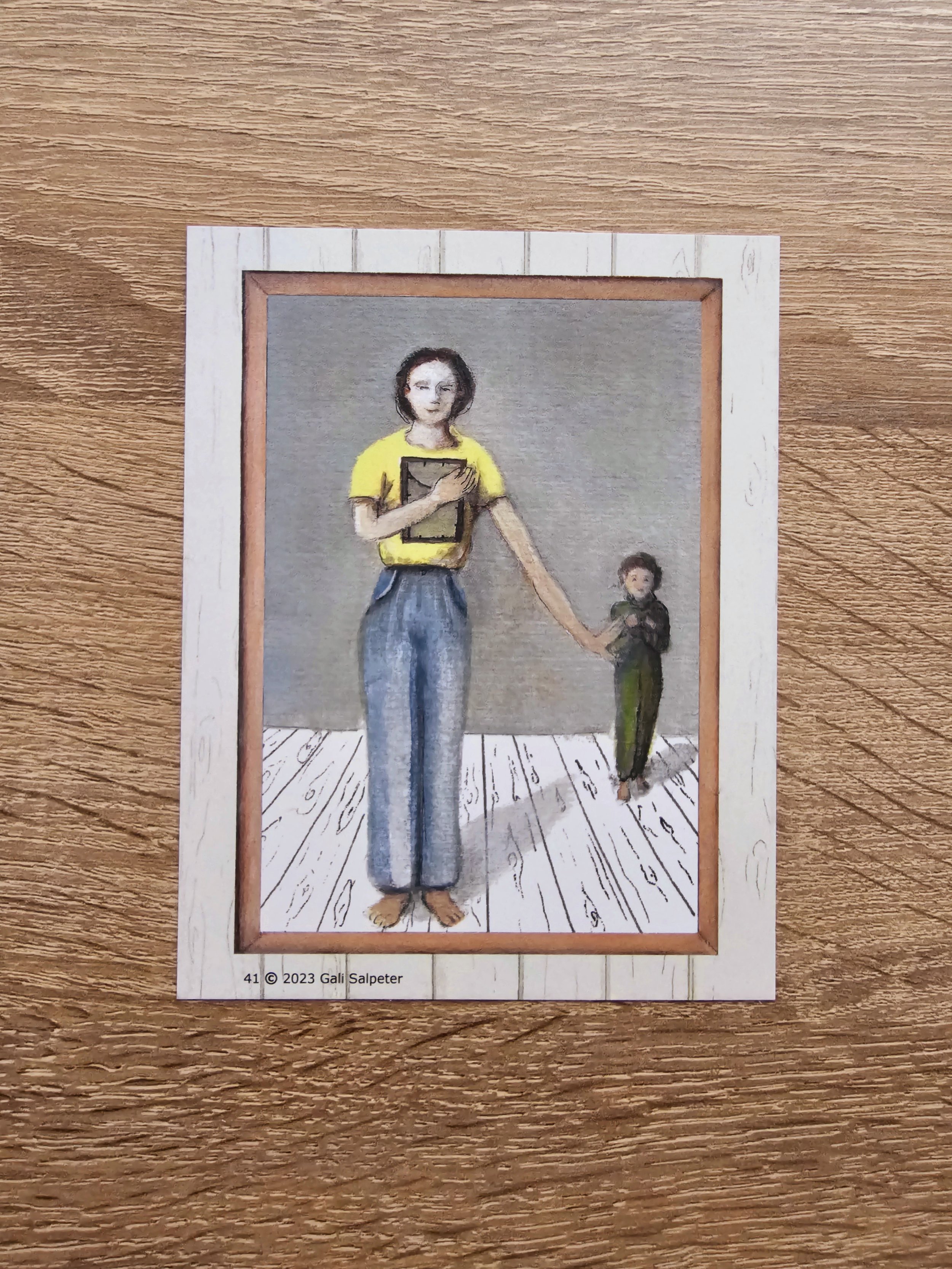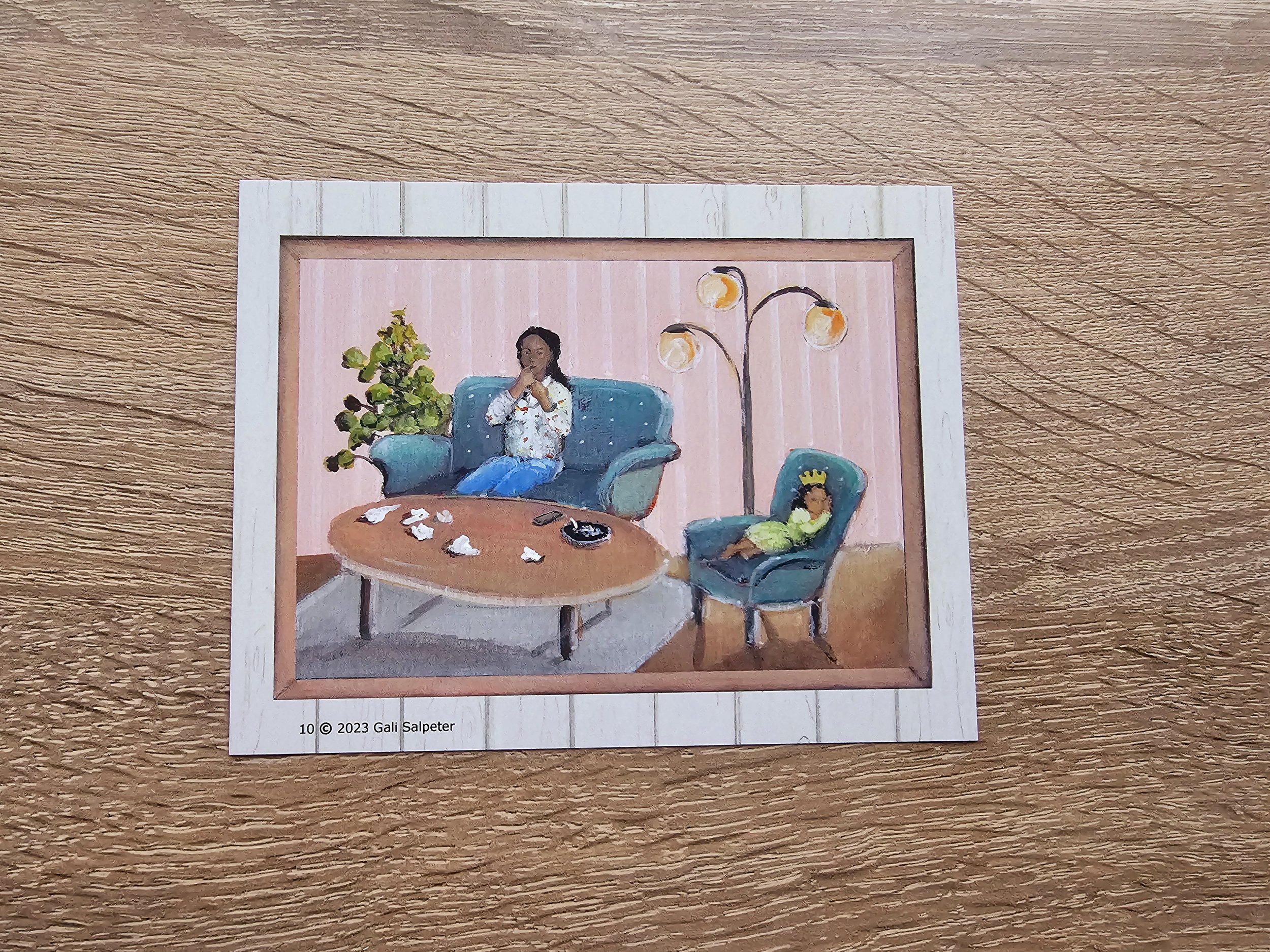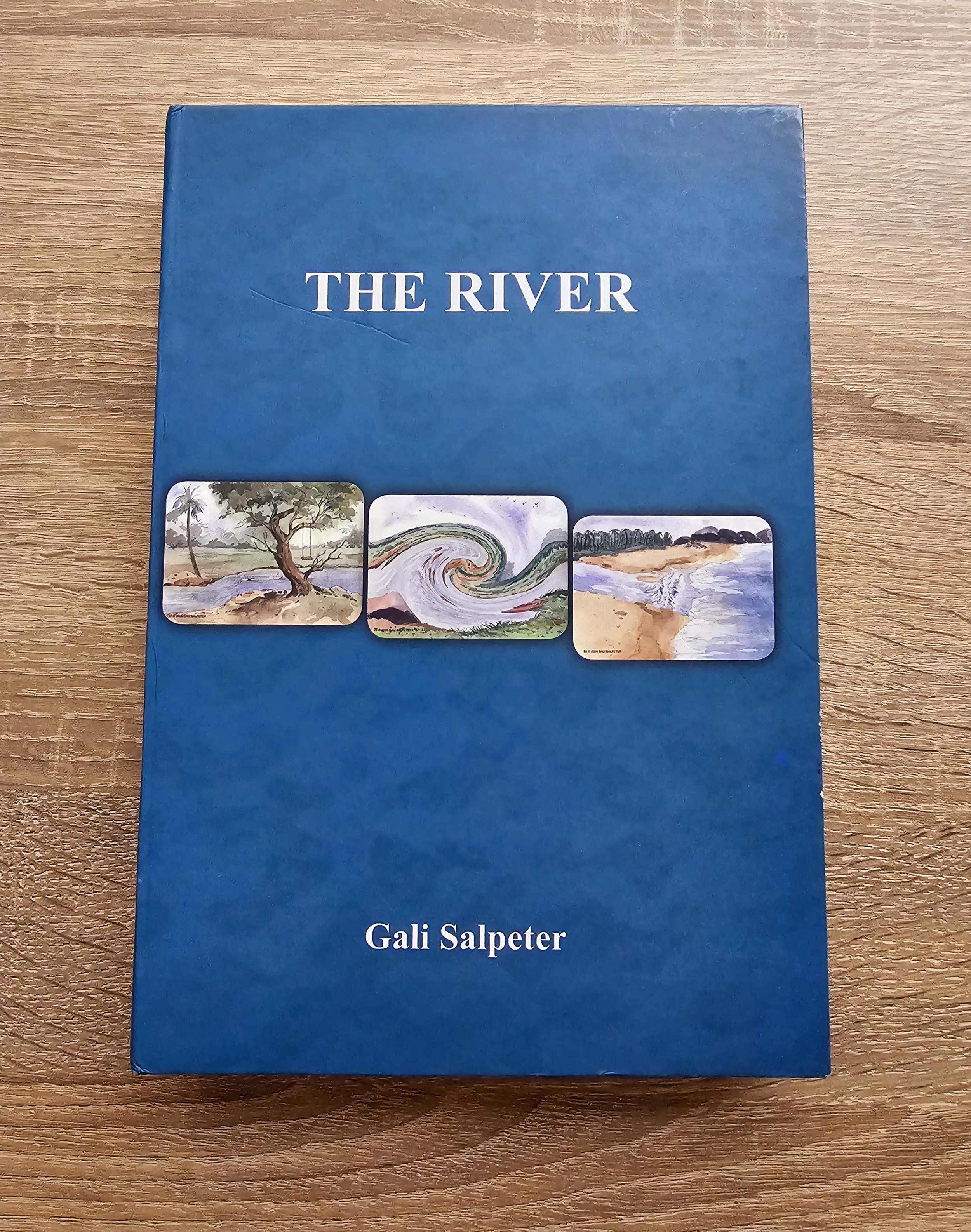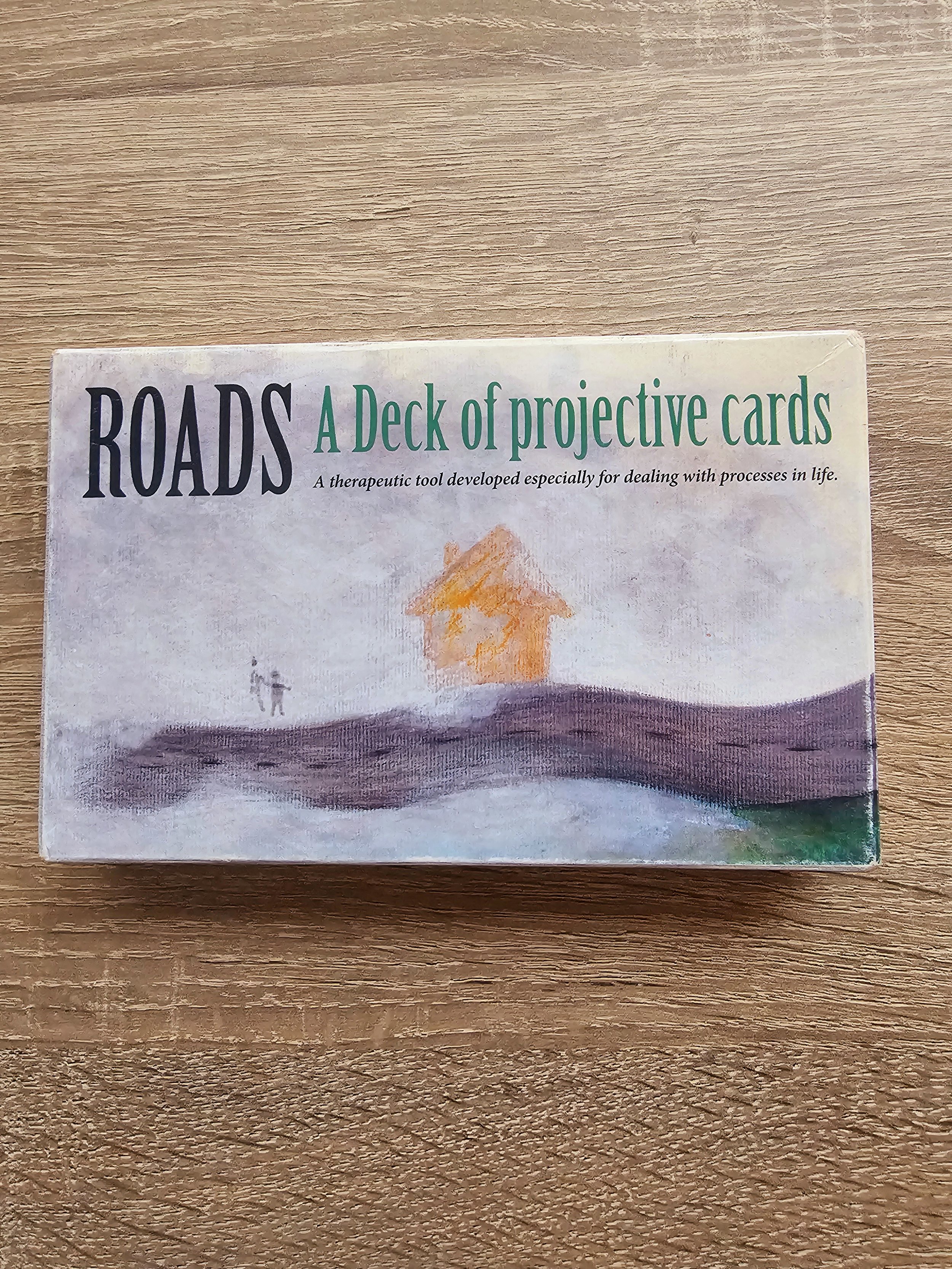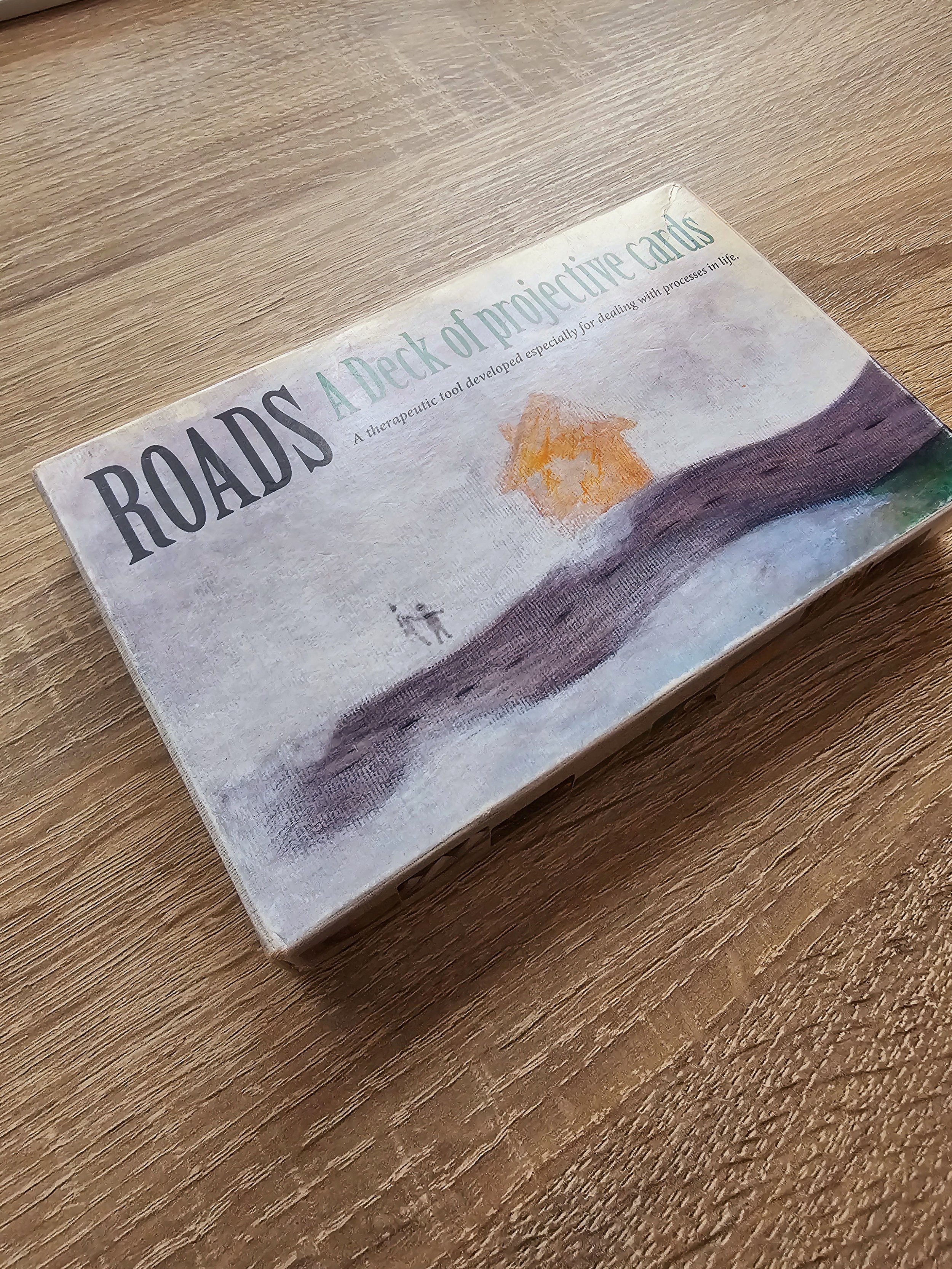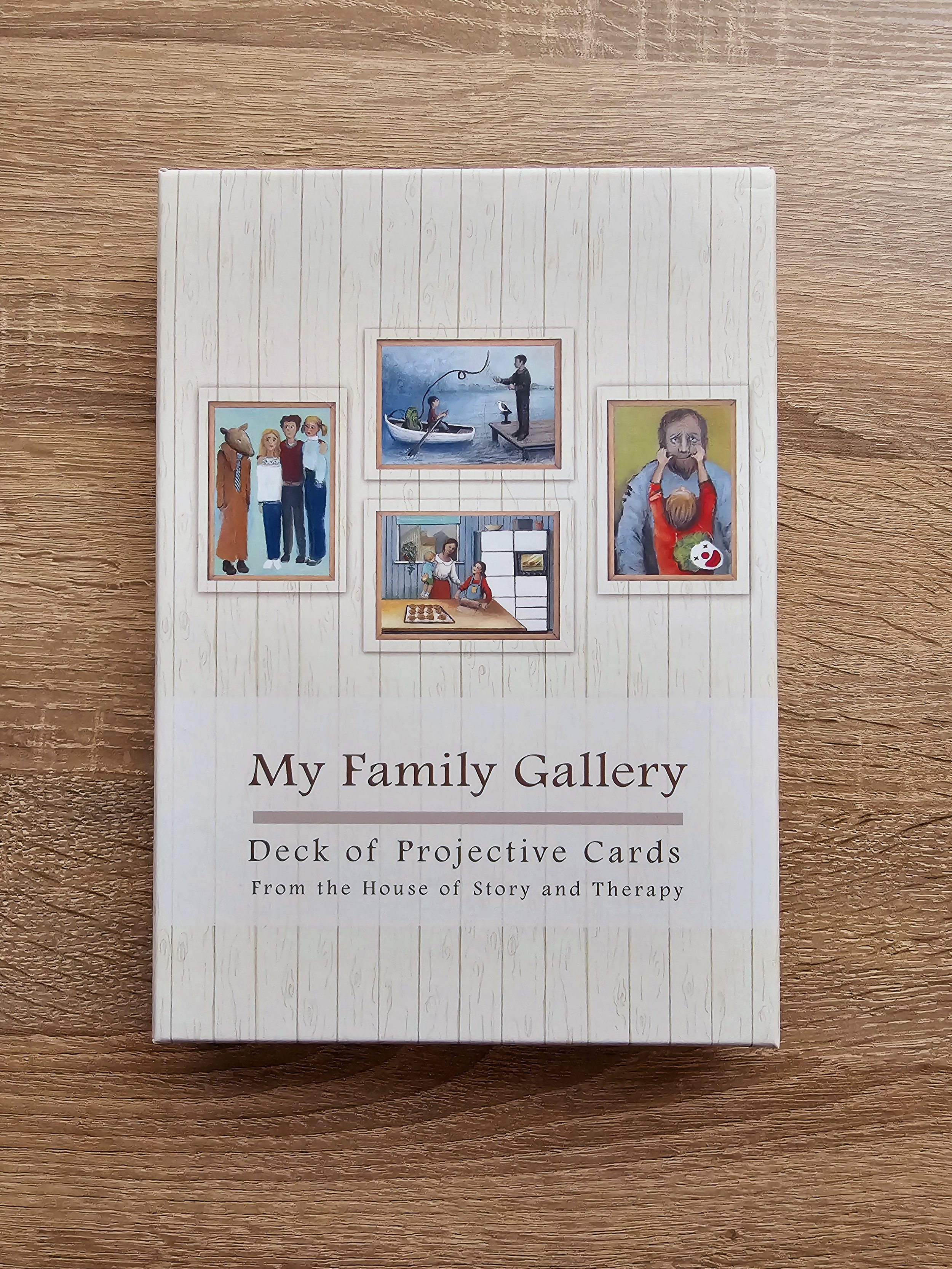
Empowering therapists, Enlightening clients.
Projective Cards, a powerful tool for the contemporary therapist who seeks variety, creativity and integration.
Read more about the cards below
or
Visit the Projective Cards Shop
Pictures are the language of the right brain. The metaphor, as the right hemisphere's language, can shatter vicious circles of negative thought and behavior and create a beneficial change.
DR. OFRA AYALON
PSYCHOLOGIST - DIRECTOR OF NORD INTERNATIONAL TRAUMA CONSULTANCY
In therapy, we will encounter various clients and situations where emotional expression can be difficult or challenging.
Clients with trauma (e.g., childhood abuse, PTSD) who may have suppressed emotions to cope with painful memories
Dissociative clients who disconnect from their emotions as a coping mechanism to avoid overwhelming feelings
Children who lack the vocabulary or cognitive development to articulate complex emotions like fear, sadness, or anger
Clients in freeze mode (often from trauma or burnout) who experience emotional numbness and difficulty engaging in therapy
Clients with anxiety or depression who may feel emotionally overwhelmed or paralyzed, making it hard to express their feelings
Highly intellectual or analytical clients who may focus on logic and reasoning, avoiding deeper emotional exploration
Clients with high emotional defenses (e.g., those with narcissistic traits or avoidant attachment styles) who find it difficult to be vulnerable or express emotions
Clients from cultures that discourage emotional expression where emotions are repressed or stigmatized
People experiencing grief who may be unable to process or express feelings of loss
Individuals in high-stress jobs or high achievers who have become disconnected from their emotional needs due to constant focus on productivity
Clients with complex family dynamics where emotions have been invalidated or ignored, leading to difficulty recognizing or expressing feelings
Clients with dissociative identity disorder (DID) or other conditions involving fragmented emotional states
This is where projective cards come in.
While talk therapy is a cornerstone of many therapeutic practices, it doesn’t always address the non-verbal, emotional, and experiential aspects of a client’s inner world. Emotions are often complex and multifaceted, making it difficult for clients to articulate them purely through words.
This is where projective cards come in—offering a visual and symbolic way for clients to engage with their feelings, experiences, and narratives. These cards can bridge the gap between thought and emotion, enabling clients to express what may be otherwise difficult to articulate.
Therapist’s favourites
These sets of cards are most purchased and most used in therapy.
*Orders for Europe clients ONLY - For orders outside Europe, please contact Gali Salpeter at StoryandTherapy.com
Why Mental Health Professionals Are Obsessed with These Cards?
Metaphorical Depth: Each card set uses rich visual metaphors to explore deep emotions and personal stories, helping clients uncover meaning in a safe, non-threatening way.
Sophisticated Design and High-Quality Print: The cards feature elegant designs and are printed to the highest standards, ensuring a professional and lasting product.
Versatility Across Populations: These cards are suitable for a wide range of clients—from children to adults—addressing issues such as trauma, relationships, and personal growth.
Facilitating Connection and Communication: Visual prompts help clients express themselves more easily, encouraging deeper emotional conversations that might be hard to verbalize otherwise.
Rich Therapeutic Potential: With guides and suggested uses, the cards offer endless possibilities for therapeutic interventions, tailored to individual client needs.
Engagement and Creativity: The cards encourage creative thinking and playful interaction, making therapy sessions more dynamic and collaborative.
Unique Possibility to Create Continuums: The sets allow therapists to explore transitions, life stages, and periods of change, offering a powerful way to examine personal growth and evolution.
Where the Cards Can Be Used.
They are highly versatile and can be used in a range of therapeutic settings:
Individual Therapy: Helping clients explore their emotions, past experiences, and future aspirations.
Couples Therapy: Promoting understanding, communication, and emotional connection between partners.
Family Therapy: Facilitating family dialogue and understanding family dynamics and roles.
Group Therapy: Encouraging group members to express shared experiences and support one another.
Supervision: Offering a reflective tool for therapists to deepen their practice and gain new insights.
Workshops & Training: Providing an engaging method to explore personal growth and emotional healing.
The projective cards can be used to address:
Trauma (e.g., childhood abuse, PTSD)
Anxiety and stress (identifying triggers and coping strategies)
Depression (exploring emotional states and underlying causes)
Grief and loss (processing emotions related to mourning and recovery)
Self-esteem and self-worth (boosting confidence and personal empowerment)
Relationship dynamics (improving communication and understanding)
Family issues (uncovering patterns and improving connection)
Life transitions (navigating changes such as career shifts, relocation, or aging)
Decision-making (assisting clients in clarifying values and choosing directions)
Burnout (identifying symptoms and setting boundaries for recovery)
Identity and purpose (exploring existential concerns and life meaning)
Addiction and dependency (understanding emotional triggers and fostering self-awareness)
Emotional regulation (helping clients process and manage emotions effectively)
Anger management (exploring and expressing underlying feelings of frustration)
Dissociation and detachment (reconnecting with emotions in a safe space)
Empower your client's emotional journey here.
During our closing session with a client, I always ask them: "Looking back, which sessions do you remember most?"
They always reply with: “The ones with the cards.
VASSIA SARANTOPOULOU, PSYCHOLOGIST - FOUNDER OF ANTILONELINESS
Testimonials.
Behind the sets...
The designer of these innovative therapeutic tools, Gali Salpeter (M.A.), is an Expressive Therapist with specialisation in Drama and Narrative Therapy.
Gali worked with children, adolescents and adults having special needs, in various settings around the world.
"I have used decks of projective cards in my sessions throughout the years, but I kept searching for a way to help my clients express, observe and work with the many processes they were going through in their lives. This led me to develop the sets."
